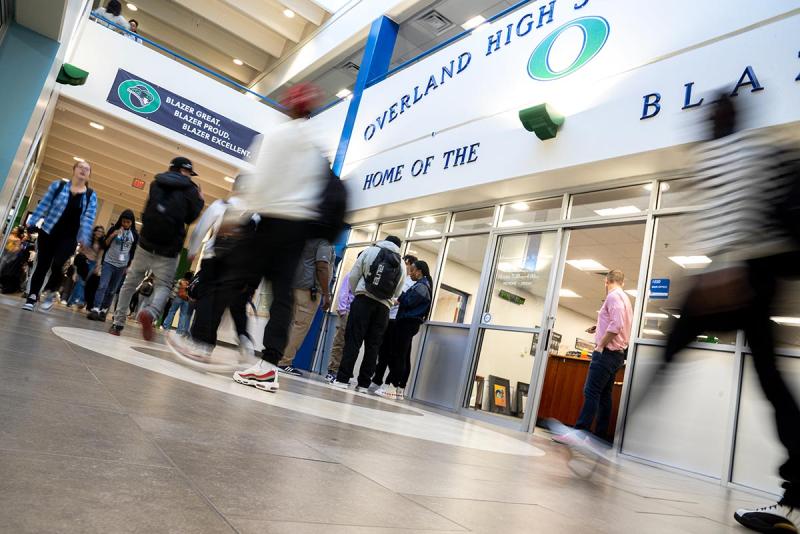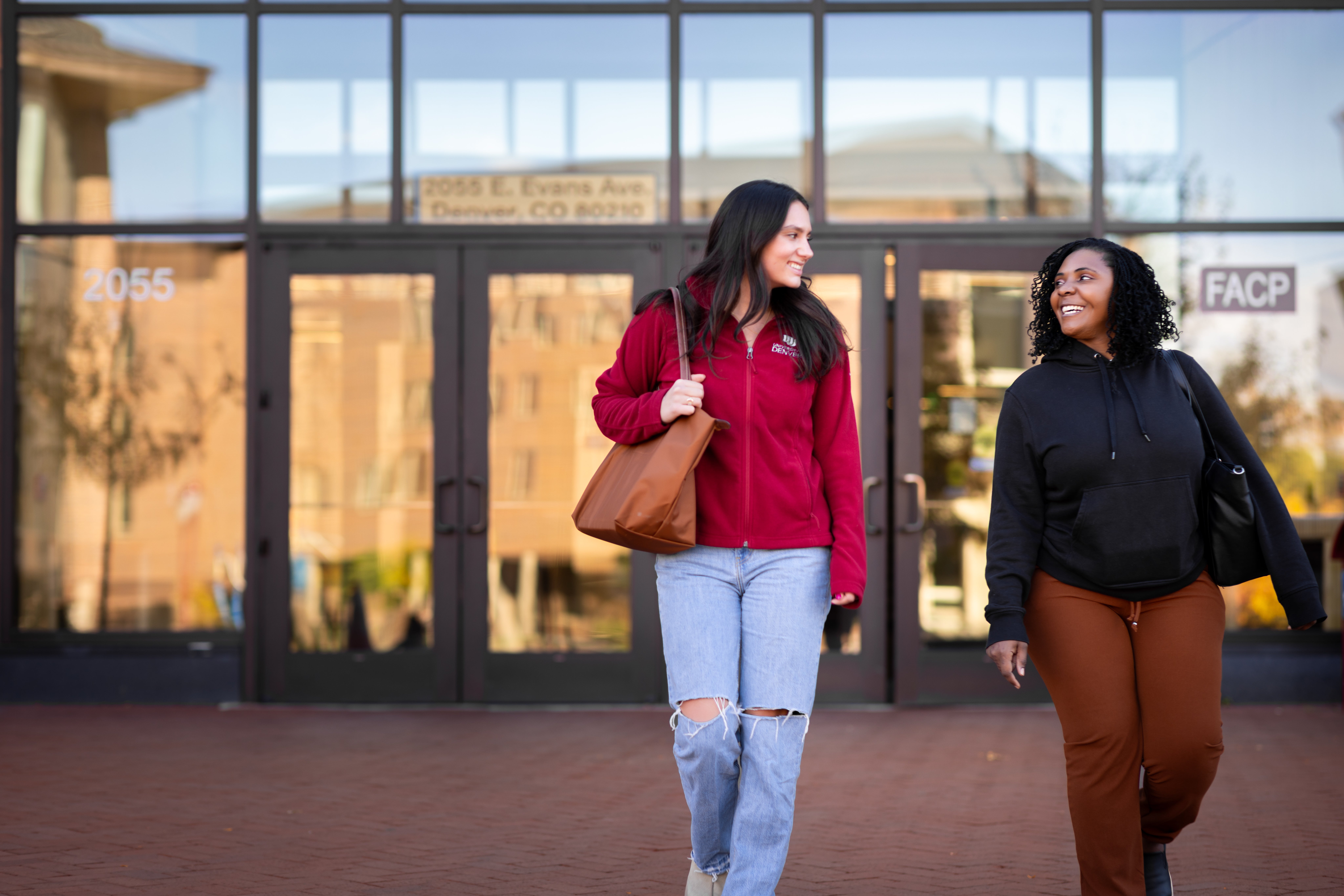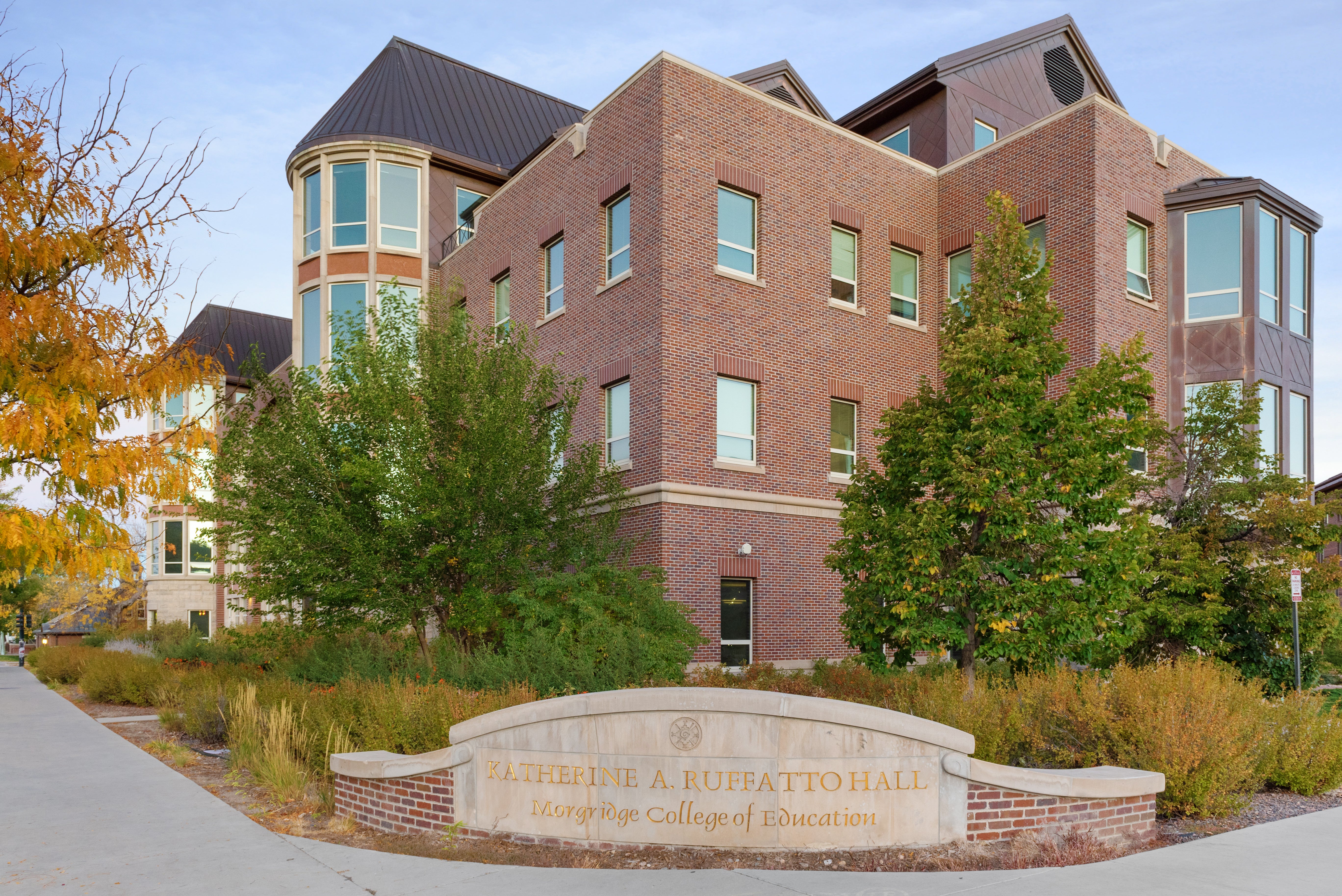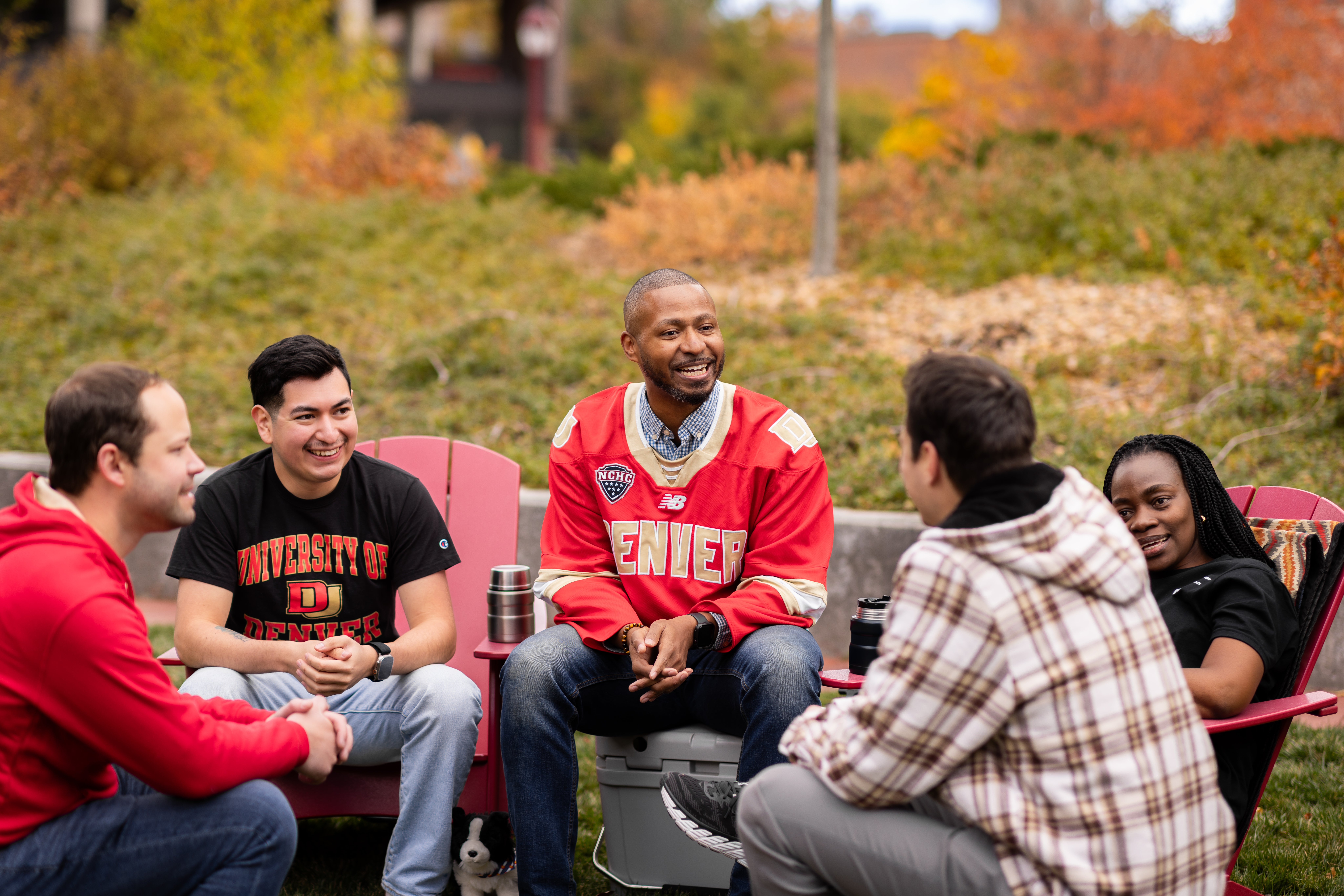MCE Student Thrives as Overland High School's First Community Liaison

As the bell rings at Overland High School, hundreds of students shuffle through the halls. Weaving through the busy halls is Sara Khatib, a current PhD student at the Morgridge College of Education and a walking reminder of community.
Khatib (MA '20) doesn’t teach in the classroom, in fact, most of her lessons take place outside the confines of a traditional space. As Cherry Creek School District’s first community liaison and interventions teacher, Khatib leverages resources to help students and families in need. The position was created in part due to a grant from the Colorado Department of Education.
“Coincidentally, when I started this position, I started the Educational Leadership and Policies Studies program at DU. Over time, I developed this fascination with family school community partnerships,” Khatib says.
She describes it as the green recycling symbol—students, families and community. They intersect. They’re intertwined. And as she’s built the position, she says it’s created a bigger opportunity to focus on student wellbeing and student wholeness.
Sybil Booker, principal of Overland High School, says Khatib is an integral part of the Overland ecosystem.
"She greets every family with grace, compassion and dignity," Booker says.
From providing resources to students experiencing homelessness to helping families who have just migrated to the United States, Khatib seen the impact of family, school and community partnerships first-hand.
During her first year in the role, Khatib recalls a conversation with a student that changed the trajectory of his life. The student, she says, was hard to find because he was never in class. But one day, she found him and asked if they could talk.
“Let’s just talk about you. Who are you?” she asked him.
He told her his dreams. He dreamed of going to college, becoming an architect or an engineer. But when COVID hit, his grades started to drop. And someone told him, “Why should you even try? You’re not going to go to college. You’re just not that intelligent.”
Khatib recalls his eyes welling with tears.
“Look, I’m looking at your grades and GPA. You still have a couple more years. You can turn things around. You shouldn’t worry about getting accepted into a college. You should worry about graduating high school,” she says.
Something changed in him, she says. He started passing all of his classes. He even wrote a college essay about their interaction—a seemingly small conversation with a big impact.
“It wasn’t providing him with community resources. The community resource was me. Just kind of to be that bridge for him. I think it falls back into my intervention role. It does intertwine. You can’t have one without the other,” Khatib says.
Since then, Khatib’s worked with nearly a hundred students, checking in on them on a bi-weekly basis. While there are some issues she can’t solve, she tries to alleviate the stressors by providing resources.
“Once a student is feeling better, they’re able to focus on education,” Khatib says. “A lot of my job relies on being in the right place at the right time.”
Whether she’s in her office or walking through the halls, the students know where to find her.



